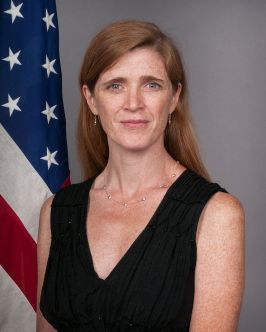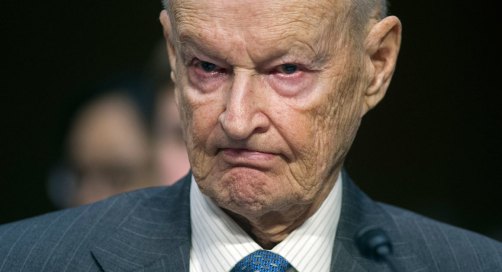In recent years it has be come quite obvious that the US government and Deep State, in collaboration with mainstream media outlets and a number of corporate/Internet entities, are now blanketing the American people with blatantly deceptive propaganda and a vastly coordinated online censorship and information control agenda. This post will delve into the methods employed from 2011 onwards and will examine various aspects of this government/elitist campaign to control the minds and perceptions of the American people, as well as citizens of other western countries.
This “Full Spectrum Dominance” propaganda/censorship front is being conducted in the following manner:
1) Manipulation of website comment sections via paid government operatives
2)Manipulation of online forums via infiltration of moderators and administrators
3)Reverse psychological projection techniques, including McCarthyism tactics and blame shifting
4)Establishment of controlled opposition groups and websites
5)Mass media coordination in collusion with an obvious government/elitists agenda
6)Use of advanced Deep State software tools to coordinate propaganda campaigns
7)Reverse psychological techniques focused on a specific government targeted adversary (in this case – Russia)
8)Monitoring of online groups that are in opposition to the government/elitists agenda
9)Labeling and discrediting of online news sites, groups and individuals that are in opposition to the government agenda, as “fake groups”
10)Manufacturing of ‘evidence’ in coordination with government selected propaganda approval outlets, thus allowing for plausible deniability (Snopes, Factcheck, Politifact, Stopfake, Syrian Observatory of Human Rights, Aleppo Media Center, Bellingcat)
11)Massive increases in funding to US government propaganda dissemination outlets (Broadcasting Board of Governors, RFE)
12)Utilization of leading social media networking sites (Facebook) to censor information, relegate certain sites to obscurity and cater to pro-government propaganda
13) Manipulation of search engine algorithms to produce results that are favorable to the governments agenda (Google, Yahoo)
14) Coordination with Internet giants to conduct operations that are favorable to the governments agenda
15) Infiltration of mass media corporations, online social media sites and Internet search engines that vastly affect public perception.
Who is the “US Information Czar” behind this “Full Spectrum Dominance” agenda?
https://en.wikipedia.org/wiki/Cass_Sunstein
Cass Robert Sunstein (born September 21, 1954) is an American legal scholar, particularly in the fields of constitutional law, administrative law, environmental law, and law and behavioral economics, who was the Administrator of the White House Office of Information and Regulatory Affairs in the Obama administration from 2009 to 2012. For 27 years, Sunstein taught at the University of Chicago Law School. Sunstein is the Robert Walmsley University Professor at Harvard Law School.
On January 7, 2009, the Wall Street Journal reported that Sunstein would be named to head the White House Office of Information and Regulatory Affairs (OIRA). That news generated controversy among progressive legal scholars and environmentalists. Sunstein’s confirmation was long blocked because of controversy over allegations about his political and academic views. On September 9, 2009, the Senate voted for cloture on Sunstein’s nomination as Administrator of the Office of Information and Regulatory Affairs, Office of Management and Budget.
Sunstein’s 2006 book, Infotopia: How Many Minds Produce Knowledge, explores methods for aggregating information; it contains discussions of prediction markets, open-source software, and wikis. His 2001 book, Republic.com, argued that the Internet may weaken democracy because it allows citizens to isolate themselves within groups that share their own views and experiences, and thus cut themselves off from any information that might challenge their beliefs, a phenomenon known as cyberbalkanization. He recanted many of the views expressed in the book before his confirmation as administrator of the Office of Information and Regulatory Affairs in order to receive Senate confirmation.
Sunstein co-authored Nudge: Improving Decisions about Health, Wealth, and Happiness (Yale University Press, 2008) with economist Richard Thaler of the University of Chicago. Nudge discusses how public and private organizations can help people make better choices in their daily lives. Thaler and Sunstein argue that people often make poor choices – and look back at them with bafflement! We do this because as human beings, we all are susceptible to a wide array of routine biases that can lead to an equally wide array of embarrassing blunders in education, personal finance, health care, mortgages and credit cards, happiness, and even the planet itself.
Sunstein (along with his coauthor Richard Thaler) has elaborated the theory of libertarian paternalism. In arguing for this theory, he counsels thinkers/academics/politicians to embrace the findings of behavioral economics as applied to law, maintaining freedom of choice while also steering people’s decisions in directions that will make their lives go better. With Thaler, he coined the term “choice architect.”
Conspiracy Theories” and government infiltration
Sunstein co-authored a 2008 paper with Adrian Vermeule, titled “Conspiracy Theories,” dealing with the risks and possible government responses to conspiracy theories resulting from “cascades” of faulty information within groups that may ultimately lead to violence. In this article they wrote, “The existence of both domestic and foreign conspiracy theories, we suggest, is no trivial matter, posing real risks to the government’s antiterrorism policies, whatever the latter may be.” They go on to propose that, “the best response consists in cognitive infiltration of extremist groups”,[35] where they suggest, among other tactics, “Government agents (and their allies) might enter chat rooms, online social networks, or even real-space groups and attempt to undermine percolating conspiracy theories by raising doubts about their factual premises, causal logic or implications for political action.”[35] They refer, several times, to groups that promote the view that the US Government was responsible or complicit in the September 11 attacks as “extremist groups.”
The authors declare that there are five hypothetical responses a government can take toward conspiracy theories: “We can readily imagine a series of possible responses. (1) Government might ban conspiracy theorizing. (2) Government might impose some kind of tax, financial or otherwise, on those who disseminate such theories. (3) Government might itself engage in counterspeech, marshaling arguments to discredit conspiracy theories. (4) Government might formally hire credible private parties to engage in counterspeech. (5) Government might engage in informal communication with such parties, encouraging them to help.” However, the authors advocate that each “instrument has a distinctive set of potential effects, or costs and benefits, and each will have a place under imaginable conditions. However, our main policy idea is that government should engage in cognitive infiltration of the groups that produce conspiracy theories, which involves a mix of (3), (4) and (5).”
Sunstein and Vermeule also analyze the practice of recruiting “nongovernmental officials”; they suggest that “government can supply these independent experts with information and perhaps prod them into action from behind the scenes,” further warning that “too close a connection will be self-defeating if it is exposed.“[35] Sunstein and Vermeule argue that the practice of enlisting non-government officials, “might ensure that credible independent experts offer the rebuttal, rather than government officials themselves. There is a tradeoff between credibility and control, however. The price of credibility is that government cannot be seen to control the independent experts.” This position has been criticized by some commentators[36][37] who argue that it would violate prohibitions on government propaganda aimed at domestic citizens.[38] Sunstein and Vermeule’s proposed infiltrations have also been met by sharply critical scholarly critiques.
WeAreChange confronts the “US Information Czar” in 2012…..
Published on May 1, 2012
In a rare public appearance, The Obama Administration’s Information Czar Cass Sunstein gave a lecture at the NYU Law School in NYC yesterday, prompting Luke Rudkowski of WeAreChange to attend. Watch as Luke confronts Sunstein multiple times on an academic paper he co-authored back in 2008 entitled “Conspiracy Theories” in which he called for cognitive infiltration of conspiracy groups by the government
Little known fact: Cass Sunstein is married to Samantha Powers (the US Ambassador to the United Nations) and the two of them worked on Obama’s 2008 election campaign. She was a senior advisor to Obama’s transition team along with Zbigniew Brzezinski who orchestrated the Grand Chessboard Strategy using Georgia and Ukraine against Russia.
IMI- Analysis – Understanding the Grand Chessboard – leading German Think Tank
Zbigniew Brzezinski’s book The Grand Chessboard: American Primacy and Its Geostrategic Imperatives is essential reading for anyone wishing to understand current and future U.S., EU and NATO policy. Brzezinski had in mind two countries or regions in particular: “Ukraine, a new and important space on the Eurasian chessboard is a geopolitical pivot because its very existence as an independent country helps to transform Russia. Brzezinski argued further that there was an imperative need to gain control of the southern Caucasus, i.e. Armenia, Azerbaijan and Georgia, on Russia’s southern flank.
http://www.imi-online.de/2009/01/01/imperial-geopolitics/



The complicit and corrupt establishment media joins in the fray to cloud the waters on behalf of Sunstein….
Cass Sunstein’s Cognitive Infiltration Exposed
An example of how government infiltration works:
Revealed: US spy operation that manipulates social media – Guardian UK
https://www.theguardian.com/technology/2011/mar/17/us-spy-operation-social-networks
The US military is developing software that will let it secretly manipulate social media sites by using fake online personas to influence internet conversations and spread pro-American propaganda. A Californian corporation has been awarded a contract with United States Central Command (Centcom), which oversees US armed operations in the Middle East and Central Asia, to develop what is described as an “online persona management service” that will allow one US serviceman or woman to control up to 10 separate identities based all over the world.
The project has been likened by web experts to China’s attempts to control and restrict free speech on the internet. Critics are likely to complain that it will allow the US military to create a false consensus in online conversations, crowd out unwelcome opinions and smother commentaries or reports that do not correspond with its own objectives.
The discovery that the US military is developing false online personalities – known to users of social media as “sock puppets” – could also encourage other governments, private companies and non-government organisations to do the same.
The Centcom contract stipulates that each fake online persona must have a convincing background, history and supporting details, and that up to 50 US-based controllers should be able to operate false identities from their workstations “without fear of being discovered by sophisticated adversaries”.
The video below highlights a software tool utilized by Ntrepid, the company mentioned in the Guardian article above….. (Note that all information in the software is in English and focused on propaganda to support the coup in Ukraine – also note that the Guardian article stipulates Ntrepids contract was for the near east and far east countries only. Thus, it is safe to assume that Ntrepid is receiving tax payer money to feed propaganda to the American people instead of doing what the Guardian article and original contract stipulates).
Ntrepid’s ‘Tartan” software product allows the Deep State discovery of key influential posters in online groups
Now lets take a look at how the Full Spectrum Dominance agenda is being carried out most recently across Facebook, the worlds most popular social network. The following Guardian UK article provides a basic breakdown on newly implemented government affiliated propaganda control measures:
Facebook to begin flagging fake news in response to mounting criticism
https://www.theguardian.com/technology/2016/dec/15/facebook-flag-fake-news-fact-check
Excerpt:
Disputed articles will be marked with the help of users and outside fact checkers amid widespread criticism that fake news influenced the US election. Facebook will begin flagging fake news stories with the help of users and outside fact checkers, the company announced on Thursday, responding to a torrent of criticism over fake news during the US election. Readers will be able to alert Facebook to possible fake news stories, which the social media behemoth will then send to outside fact-checking organizations to verify. Facebook is working with five fact-checking organizations – ABC News, AP, FactCheck.org, Politifact and Snopes – to launch the initiative. If enough of Facebook’s users report a story as fake, the social network will pass it onto these third parties to scrutinize.
If a story is deemed to fail the fact check, it will be publicly flagged as “disputed by 3rd party fact-checkers” whenever it appears on the social network. Users will be able to click on a link to understand why it’s disputed. If a Facebook user then still want to share the story, they’ll get another warning about its reliability. Disputed stories also may appear lower in the newsfeed, said Facebook.
Another change being rolled out identifies stories that are being shared more by people who have only read the headline than by people who have actually clicked on them and read the text. “We’ve found that if reading an article makes people significantly less likely to share it, that may be a sign that a story has misled people in some way,” the company said.
More at link above…..
We are also seeing Search Engine giant Google implementing restrictive Ad Sense monetization measures for You Tube sites that do not toe the official government/establishment narrative line. Example here (volume warning):
Below we see an example of Google working together with al-Jazeera (Qatar) and Hillary Clinton’s team to implement the Alphabet tool to help conduct regime change in Syria via propaganda and information dissemination. Wikileaks revealed the activity in 2015:
WikiLeaks reveals Hillary, Google, al Jazeera all conspiring against Syria.
http://truepublica.org.uk/global/google-able-effect-regime-change-appears/
Last week truepublica reported that four months ago, Google created a new holding company called Alphabet and that Eric Schmidt the new Executive Chairman of Alphabet, and therefore Google had decided to accept the offer of leading the Pentagon advisory board with a view to “bringing Silicon Valley innovation and best practices to the US military.” We questioned the ethics and moral judgement of both Schmidt and Google in joining forces with the biggest killing machine in modern times, certainly since the world wars.
We pointed to the meeting between Eric Schmidt and Julian Assange back in 2011, supposedly organised to discuss a book Schmidt was writing who was unexpectedly accompanied by a Jared Cohen. Cohen had moved to Google from the U.S. State Department in 2010. He had been a slick ideas guy at two U.S. administrations, known to be something of a courtier from the world of policy think tanks sympathetic to US foreign policy. He was a senior advisor for Secretaries of State Rice and Clinton.
Assange asserts that Schmidt was acting directly on behalf of Washington with a documented relationship that put him close to President Obama and Clinton and as Assange puts it: “Cohen’s directorate appeared to cross over from public relations and “corporate responsibility” work into active corporate intervention in foreign affairs at a level that is normally reserved for states. Jared Cohen could be wryly named Google’s “director of regime change.”
The following video reveals what Google advocated using the Alphabet software tool against Syria::
In the following very recent Reuters article (dated December 21, 2016) it is revealed that the US government will soon establish a “Global Engagement Center” that will track online activities of people that the government deems are “spreading false stories”.
http://www.reuters.com/article/us-usa-russia-disinformation-analysis-idUSKBN1492PA
Excerpt:
Clinton Watts, a security consultant, former FBI agent and a fellow at the nonprofit Foreign Policy Research Institute, said the U.S. government no longer has an organization, such as the U.S. Information Agency, that provided counter-narratives during the Cold War. He said that most major Russian disinformation campaigns in the United States and Europe have started at Russian-government funded media outlets, such as RT television or Sputnik News, before being amplified on Twitter by others.
Watts said it was urgent for the U.S. government to build the capability to track what is happening online and dispute false stories. “Those two things need to be done immediately,” Watts said. “You have to have a public statement or it leads to conspiracy theories.” A defense spending pill passed this month calls for the State Department to establish a “Global Engagement Center” to take on some of that work, but similar efforts to counter less sophisticated Islamic State narratives have fallen short.
James Lewis, a cyber security expert at the Center for Strategic & International Studies who has worked for the departments of State and Commerce and the U.S. military, said Washington needed to move beyond antiquated notions of projecting influence if it hoped to catch up with Russia. “They have RT and all we know how to do is send a carrier battle group,” Lewis said. “We’re going to be stuck until we find a way deal with that.”
Watts, who said he has tracked tens of thousands of pro-Russia Twitter handles since 2014, believes many of the most effective stories stoke fear of war or other calamities or promote a narrative of corrupt Western politicians, media and other elites. Obama has asked spy agencies to deliver an analysis of Russian meddling in the election that will include discussion of propaganda operations, Office of the Director of National Intelligence General Counsel Robert Litt told Reuters.
Much more at link above…..
In the post election 2016 atmosphere, a crackdown on sites that did not follow the government line was rolled out by the US Deep State utilizing their flagship propaganda tool The Washington Post and an untraceable recently formed group calling themselves PropOrNot. The near entirety of the US and UK alternative media were placed on a PropOrNot list along wth a number of Russian news sites. Any site that exposed US corruption and/or media collusion during the election 2016 process was placed on the list. The list has now been disseminated to Facebook, Google and other Internet giants, as well as government authorized “fact checkers’ to limit the ability of these sites to influence public thought.
http://www.globalresearch.ca/whos-behind-propornots-blacklist-of-news-websites/5560970 – by Pam Martens
https://consortiumnews.com/2016/12/05/wpost-wont-retract-mccarthyistic-smear/ – by Norman Solomon
https://consortiumnews.com/2016/11/27/washington-posts-fake-news-guilt/ – by Robert Parry
http://www.counterpunch.org/2016/12/06/media-complicity-is-key-to-blacklisting-websites/ – by Norman Solomon
The US government has also been deliberating as to whether or not to enact government measures directly against sites that have been placed on the PropOrNot list, therefore stifling free speech and creating fear of reprisals for sites and individuals producing information that does not suit the governments interests. Paradoxically, all of the government techniques being employed are completely un-American. They are in complete contrast to the First Amendment………..as they abridge the freedom of speech.
Constitution of United States of America 1789
Congress shall make no law respecting an establishment of religion, or prohibiting the free exercise thereof; or abridging the freedom of speech, or of the press; or the right of the people peaceably to assemble, and to petition the Government for a redress of grievances.
The following 2015 Guardian UK article highlights how service personnel of western countries are officially on Facebook and other sites influencing the governments agenda.
https://www.theguardian.com/uk-news/2015/jan/31/british-army-facebook-warriors-77th-brigade
The British army is creating a special force of Facebook warriors, skilled in psychological operations and use of social media to engage in unconventional warfare in the information age. The 77th Brigade, to be based in Hermitage, near Newbury, in Berkshire, will be about 1,500-strong and formed of units drawn from across the army. It will formally come into being in April.
The brigade will be responsible for what is described as non-lethal warfare. Both the Israeli and US army already engage heavily in psychological operations. Against a background of 24-hour news, smartphones and social media, such as Facebook and Twitter, the force will attempt to control the narrative.
More at link….
Israel also utilizes paid government propaganda disseminators:
Israeli students to get $2,000 to spread state propaganda on Facebook
Ali Abunimah 4 January 2012
The National Union of Israeli Students (NUIS) has become a full-time partner in the Israeli government’s efforts to spread its propaganda online and on college campuses around the world.
NUIS has launched a program to pay Israeli university students $2,000 to spread pro-Israel propaganda online for 5 hours per week from the “comfort of home.” The union is also partnering with Israel’s Jewish Agency to send Israeli students as missionaries to spread propaganda in other countries, for which they will also receive a stipend.
The project seeks to take advantage of the fact that “Many students in Israel master the Internet and are proficient at using the Internet and social networking and various sites and are required to write and express themselves in English.” The paid scholarship will allow them to get training and then work from home for five hours per week for a year to “refute” what it calls “misinformation” about Israel on social networking sites.
More at link……
So where is all this “Full Spectrum Dominance” which uses McCarthy tactics, red-baiting and Russia as a ruse leading to? Answer: A controlled future….one that matches the desires of the global elite and the corrupt establishment/Deep State that rules over all of us.
2nd TruthStream video explains new Facebook blocks and verifications with images.
For more information on how the US government carries out psychological information warfare, see here:
Click to access USArmy-PsyOpsTactics.pdf
https://publicintelligence.net/restricted-u-s-army-psyops-manual/



